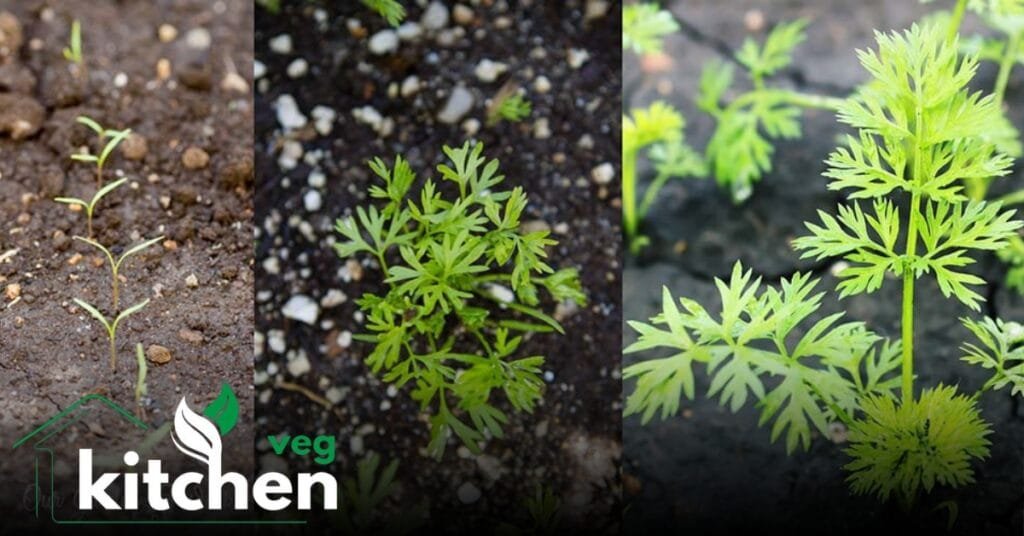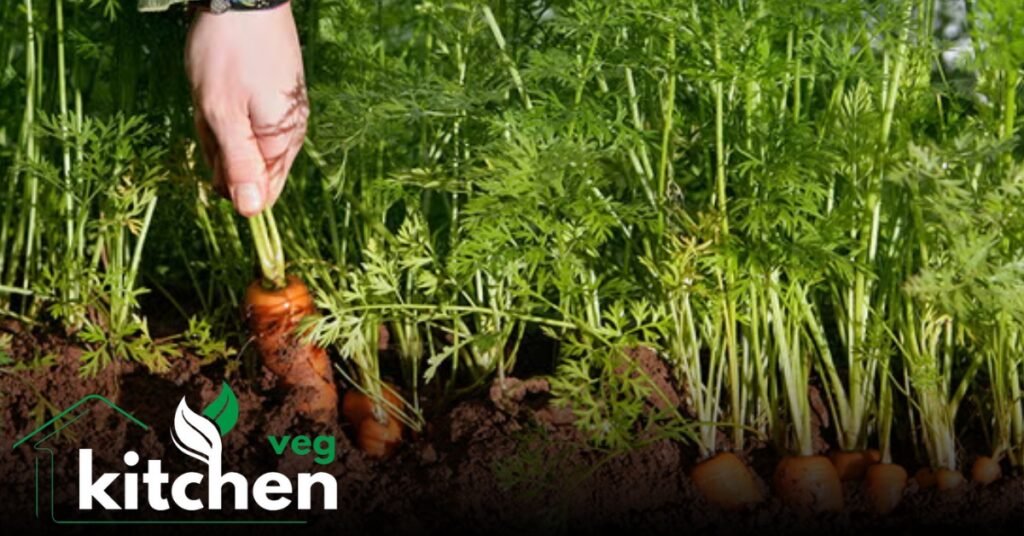Introduction
The early shoots of the carrot (Daucus carota) plant that appear soon after germination are known as carrot sprouts. Carrot sprouts are frequently disregarded despite mature carrots being well-known for their vibrant orange color and delicious flavor. Concentrated nutrient content and great flavor characterize these sprouts, usually harvested 7–14 days after germination. For more information on similar sprouts, check out our article on Basil Sprouts.
Nutritional Profile of Carrot Sprouts
Carrot sprouts are an incredible source of nutrients. They are rich in vital minerals, including potassium, calcium, and magnesium, as well as high concentrations of vitamins A, C, and K. Additionally, the sprouts’ beta-carotene and lutein content are abundant in antioxidants that are good for eye health. They also offer an excellent dose of plant-based proteins and nutritional fiber.
Health Benefits of Carrot Sprouts
Carrot sprouts are high in nutrients, which means they have several health advantages. The following are some main advantages:
- Improved Vision: High beta-carotene content lowers the risk of age-related macular degeneration and promotes healthy eyesight.
- Immune Support: The immune system improves, and infections are prevented by vitamin C and other antioxidants.
- Bone Health: Calcium and vitamin K are necessary for keeping strong, healthy bones.
- Digestive Health: Dietary fiber facilitates digestion and supports a balanced gut flora.
- Skin Health: Vitamins and antioxidants help keep skin radiant and healthy while minimizing the effects of aging.
How to Grow Carrot Sprouts at Home
Carrot sprouts are easy to grow at home and immensely satisfying. This is a comprehensive guide:
- Select Quality Seeds: Start with organic carrot seeds of the highest caliber.
- Prepare the soil: Use soil drains correctly and in a shallow container. It is essential to make sure the soil is damp but not soggy.
- Sow the Seeds: The seeds should be evenly distributed around the soil’s surface, and a thin layer of dirt should be applied to them.
- Watering: Maintain a constant moisture level in the soil, but do not overwater it.
- Light and Temperature: The container should be placed in a warm, bright area. The ideal temperature range for carrot-sprouts is 60–70°F (15–21°C).
- Harvesting: The sprouts should be ready to be harvested in 7 to 14 days. Trim them close to the soil’s top with a pair of scissors.
Culinary Uses of Carrot Sprouts
Sprouts of carrots are adaptable and can be utilized in a variety of culinary applications. Their somewhat sweet flavor and delicate texture make them a great addition to:
- Salads: Add a handful of carrot sprouts to your preferred salad for a nutritional boost.
- Sandwiches and Wraps: Carrot-sprouts make a crunchy and fresh garnish for wraps and sandwiches.
- Smoothies: To add more vitamins and minerals to green smoothies, blend them.
- Garnishes: Utilize them as a colorful and nourishing addition to stews, soups, and other meals.
- Stir-Fries: Stir-fry them to make a quick and nutritious dinner.

Carrot Sprouts in Traditional Medicine
Traditional medical methods have used carrot sprouts because of their health benefits. Carrot sprouts are used in Ayurveda to assist liver function and enhance digestion, and they are thought to have cleansing properties. Traditional Chinese medicine has shown carrot sprouts to be beneficial for improving general health and vigor.
Environmental Benefits of Growing Carrot Sprouts
There are environmental benefits when growing carrot sprouts at home or in communal gardens. Among them are:
- Reduced Carbon Footprint: Produce from stores requires more packing and transportation. Thus, home gardening eliminates those needs.
- Biodiversity: Growing a range of plants, including carrot-sprouts, benefits local biodiversity and pollinator health.
- Soil Health: Sprouts preserve soil structure and health, as they require little disturbance.
- Water Efficiency: Compared to the production of mature vegetables, sprouts require less water.
Carrot Sprouts vs. Mature Carrots: A Nutritional Comparison
Carrot sprouts and mature carrots have different nutritional profiles, although they are equally nutritious. Carrot sprouts offer higher quantities of specific vitamins and minerals per gram than mature carrots. They are exceptionally high in vitamin K, which mature carrots are not as high in. Mature carrots, however, offer higher levels of beta-carotene and dietary fiber overall.
Potential Risks and Considerations
Carrot sprouts are usually safe to eat. However, there are a few things to be aware of:
- Allergies: Carrot sprout allergies may affect certain people. The symptoms may include edema, discomfort in the digestive tract, and itching.
- Contamination: Grow sprouts in a clean environment to reduce the chance of bacterial infection. Thoroughly rinse them before eating.
- Oxalates: In susceptible individuals, the presence of oxalates in carrot-sprouts might lead to the growth of kidney stones. Moderation is essential for people who have a history of kidney stones.
Commercial Production of Carrot Sprouts
The rising demand from consumers for nutrient-dense, fresh meals has led to a growth in the commercial production of carrot-sprouts. Commercial growers enhance growth conditions through controlled surroundings to ensure a consistent and superior output. These businesses frequently use hydroponic systems, which save water and reduce the need for pesticides.

Conclusion:
Carrot sprouts complement any diet, providing a concentrated form of vital nutrients and a host of other health advantages. They are an easy and efficient approach to improving your overall nutrition, whether you produce them at home or buy them from a local market. Their simplicity of growing and flexibility in the kitchen makes them a healthy and accessible option for health-conscious people.
In conclusion, carrot sprouts are a nutritional jewel that is sometimes disregarded. You may reap the full benefits of their extraordinary health benefits by knowing how to grow them, understanding their benefits, and figuring out different ways to include them in your diet. Accept the power of these little greens and witness the beneficial effects they can have on your health.

